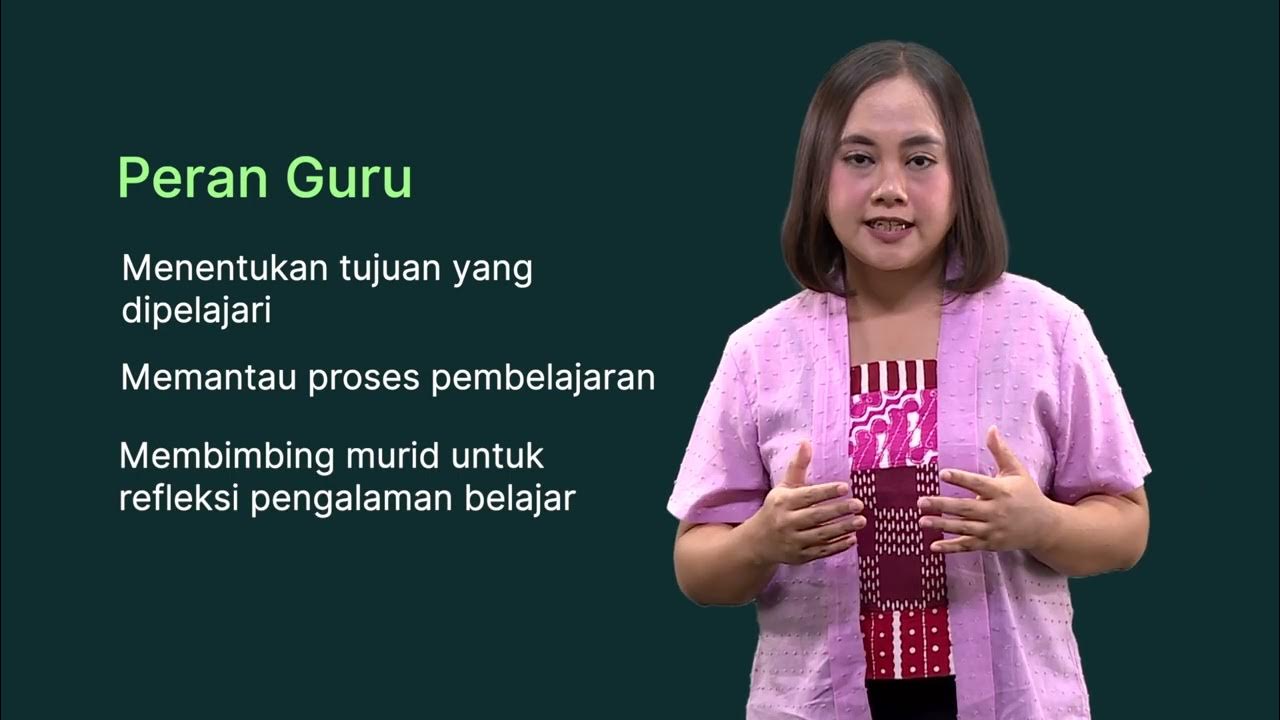LU 3 - 3. Kodrat Zaman
Summary
TLDRThis educational video emphasizes the importance of adapting teaching methods to the evolving needs of students, in line with the principles of Ki Hajar Dewantara. It discusses the concept of 'kodrat zaman' (the nature of time), highlighting how education should evolve alongside societal progress. Teachers are urged to guide students using the 'Continue', 'Konvergen', and 'Konsentris' principles to ensure a balance between global influences and local cultural values. The video encourages educators to foster critical thinking, creativity, and collaboration, preparing students for the demands of the 21st century.
Takeaways
- 😀 Education must evolve in response to the dynamic nature of time and its influence on human life and society.
- 😀 Ki Hajar Dewantara emphasizes the importance of understanding the 'kodrat zaman' (the nature of time) in educational reform.
- 😀 Kodrat zaman is closely linked to the natural environment and societal conditions, both of which should guide the educational process.
- 😀 The ultimate goal of education is to nurture the potential of students according to their time, culture, and the era they live in.
- 😀 Dewantara advocates for the use of the 'Trikon' principles in education: Continue (continuity), Converge (openness to new ideas), and Concentrate (focus on local culture and values).
- 😀 The 'Continue' principle highlights the need for educators to guide students with a consistent, long-term educational plan.
- 😀 The 'Converge' principle stresses the importance of drawing inspiration from various global practices while integrating local cultural values.
- 😀 The 'Concentrate' principle ensures that education is rooted in local identity, culture, and character while still being relevant in a global context.
- 😀 Education today focuses on developing critical, creative, and innovative thinking, alongside communication and collaboration skills for the 21st century.
- 😀 Global influences must be filtered through the lens of local wisdom and values to create a more relevant and context-aware educational system.
Q & A
What is the main focus of the video script?
-The script focuses on the philosophy of education proposed by Ki Hajar Dewantara, emphasizing the need to adapt teaching methods to the nature of the time (kodrat zaman) and the development of students' skills in the context of 21st-century education.
What does 'kodrat zaman' mean in the context of Ki Hajar Dewantara's educational philosophy?
-'Kodrat zaman' refers to the natural essence of a specific time period, emphasizing that education should evolve in line with societal and environmental changes. It acknowledges that each era has its unique characteristics that influence the approach to education.
How does Ki Hajar Dewantara suggest educators should approach reform in education?
-Ki Hajar Dewantara suggests that educators should conduct reforms in a holistic manner, ensuring that the well-being and needs of students, both individually and socially, are considered. The reforms must respect both natural laws and the dynamics of the current time.
What are the three core principles of the 'trikon' theory proposed by Ki Hajar Dewantara?
-The three core principles of the 'trikon' theory are 'continue' (continuous development), 'convergen' (open-mindedness towards external sources of knowledge), and 'konsentris' (focusing on the nation's own character, values, and culture).
What does 'continue' mean in the context of the 'trikon' theory?
-In the 'trikon' theory, 'continue' refers to the continuous and sustainable development of students, ensuring that the education system aligns with the changing needs of society and the environment.
What is the significance of 'convergen' in Ki Hajar Dewantara's educational philosophy?
-'Convergen' emphasizes that educators should be open to learning from other cultures and adopt practices that benefit students, while integrating these new ideas into the broader context of the nation's values and identity.
What does 'konsentris' suggest about the role of national culture in education?
-'Konsentris' suggests that the education system should be centered around the nation's own identity, values, and culture, ensuring that these elements remain at the heart of the learning process.
How does Ki Hajar Dewantara relate his educational philosophy to the 21st century?
-Ki Hajar Dewantara's philosophy is applied to the 21st century by focusing on the development of 21st-century skills in students, such as critical thinking, creativity, innovation, communication, and collaboration, while maintaining a strong foundation in local values and culture.
What role do local wisdom and culture play in modern education according to the script?
-Local wisdom and culture play a crucial role in modern education by ensuring that global influences are filtered through the lens of national identity and cultural values, thereby preserving the uniqueness of Indonesian culture while fostering global connectivity.
How does the learning process for 21st-century students differ from that of students in the mid-20th century?
-The learning process for 21st-century students is more interactive and project-based, encouraging critical thinking, creativity, collaboration, and communication. It contrasts with the more rigid, lecture-based approach of mid-20th-century education.
Outlines

This section is available to paid users only. Please upgrade to access this part.
Upgrade NowMindmap

This section is available to paid users only. Please upgrade to access this part.
Upgrade NowKeywords

This section is available to paid users only. Please upgrade to access this part.
Upgrade NowHighlights

This section is available to paid users only. Please upgrade to access this part.
Upgrade NowTranscripts

This section is available to paid users only. Please upgrade to access this part.
Upgrade Now5.0 / 5 (0 votes)





